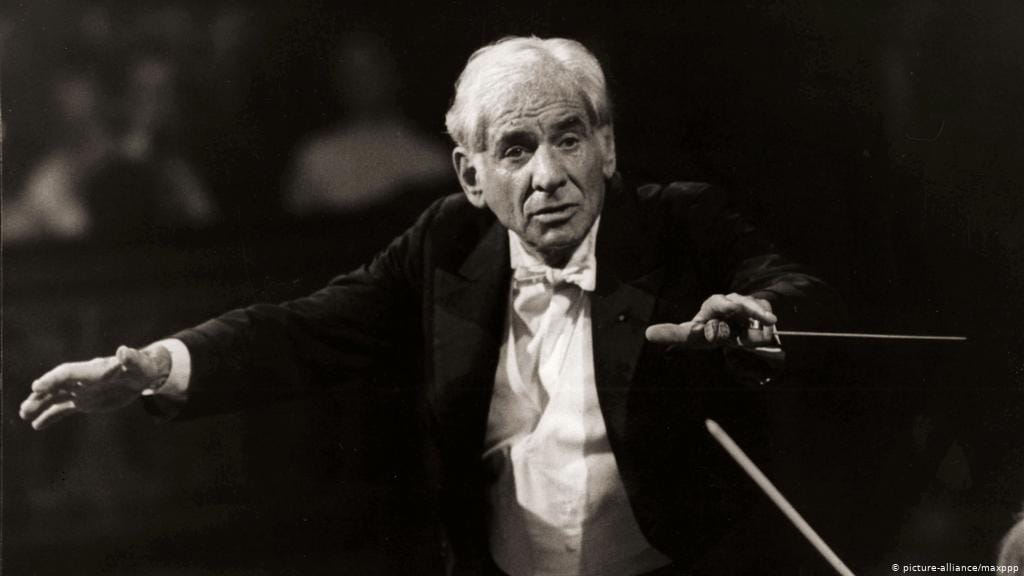For When Pessimism Creeps In

"Our pride is not that we were swept up in the tragic whirlwind of history," wrote C.J. Price on November 27, 1963, "but that when we were, we were not found wanting."
Mr. Price was the Administrator of Parkland Memorial Hospital. Five days earlier, President Kennedy and Texas Governor John Connally had been rushed into Parkland's ER from their motorcade in Dallas' Dealey Plaza. The hospital became the seat of government for the state of Texas, the seat of government for the United States, the site where the 35th President and his assassin took their last breaths.
And as Mr. Price wrote, Parkland "continued to function at a close to normal pace as a large charity hospital." Limbs were mended, wounds bandaged, diagnoses delivered, all as the world outside altered irrevocably.
Three days later and thousands of miles across the disbelieving country, Leonard Bernstein sat in Madison Square Garden for the United Jewish Appeal of Greater New York. The conductor loved the President, a man who valued art and the human creativity behind it.
The night before, Mr. Bernstein had led the New York Philharmonic in Mahler’s Second Symphony, The Resurrection. They had played it not only for the resurrection of the President's soul, but for the resurrection of hope in the mourning country.
Pessimism about what's to come – a pessimism which was surely washing over the American landscape – is not a sign of urbanity or wisdom. It is usually a sign of fear, that the world we quietly hoped for isn't possible, so why even bother imagining it?
But C.J. Price and Leonard Bernstein seemed to have a reverence for the parameters of the human heart. They seemed to know it is vast enough, elegant enough to hold fear, grief, hope without one cancelling out another. It is living in this honest coexistence that leads us clear eyed and open hearted into what's ahead.
Just a few months before President Kennedy's assassination, Martin Luther King sat in a Birmingham Jail and wrote of the call to be a thermostat, not a thermometer – "a thermometer...recorded the ideas and principles of popular opinion; it was a thermostat that transformed the mores of society."
Our time needs fewer thermometers and more thermostats. More people who won't cede dinner table conversations, text chains, their mental real estate to pessimism. More people who point us towards something more useful, more life-giving. We could do that.
And in Madison Square Garden on November 25, 1963, Mr. Bernstein set the temperature. "We musicians, like everyone else, are numb with sorrow at this murder, and with rage at the senselessness of the crime," he told the crowd. "This sorrow and rage will not inflame us to seek retribution; rather they will inflame our art...This will be our reply to violence: to make music more intensely, more beautifully, more devotedly than ever before."
